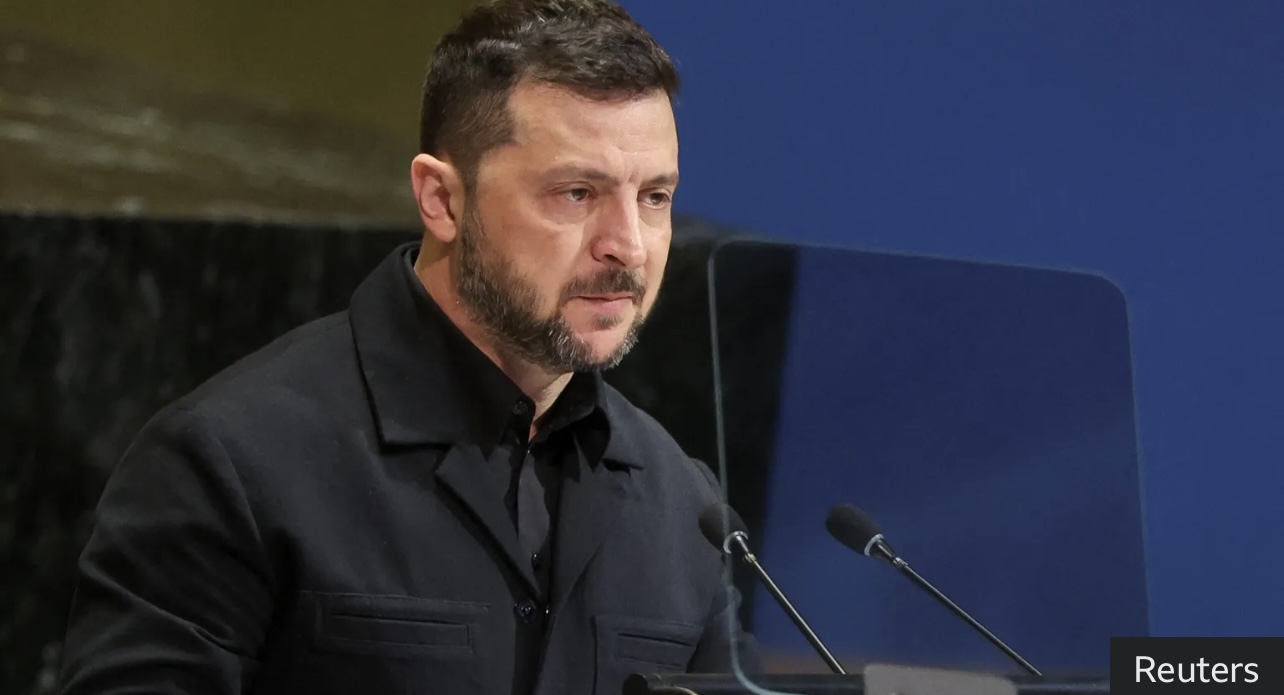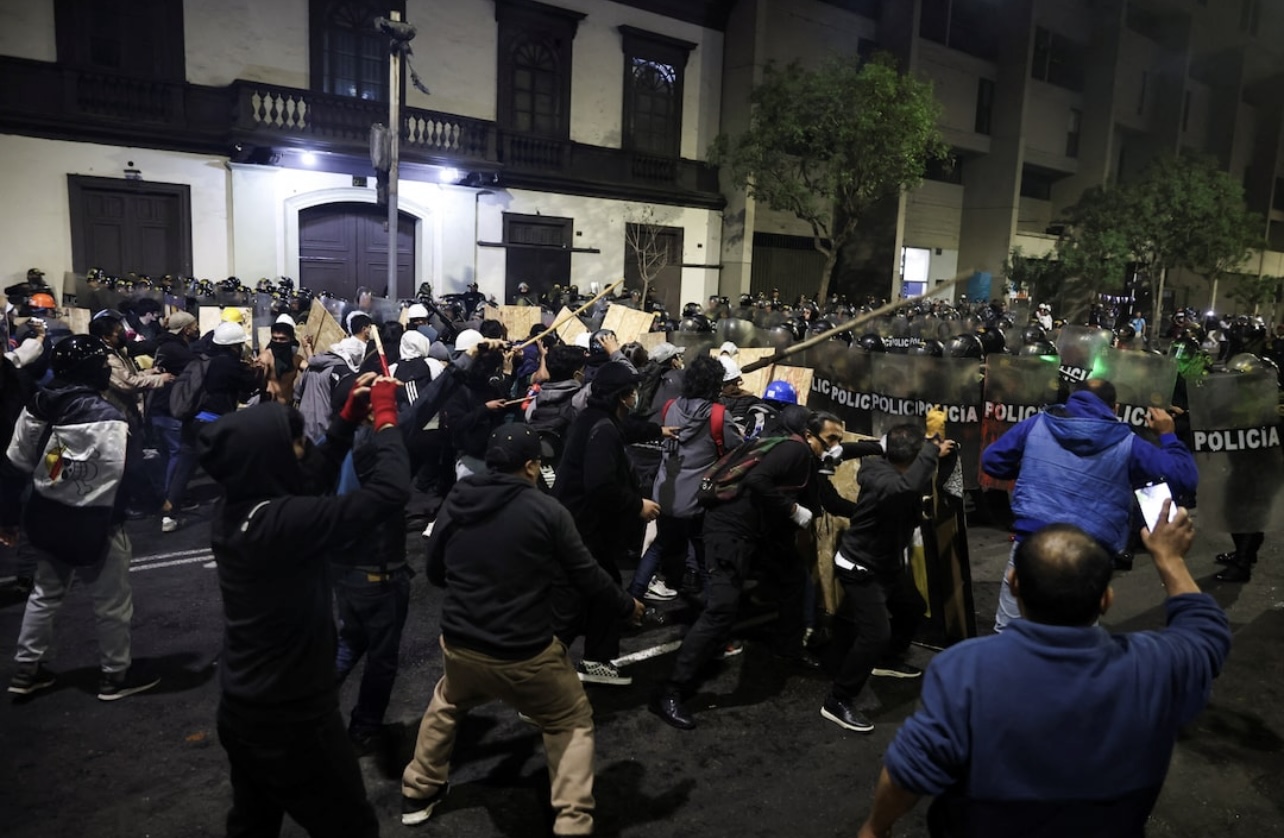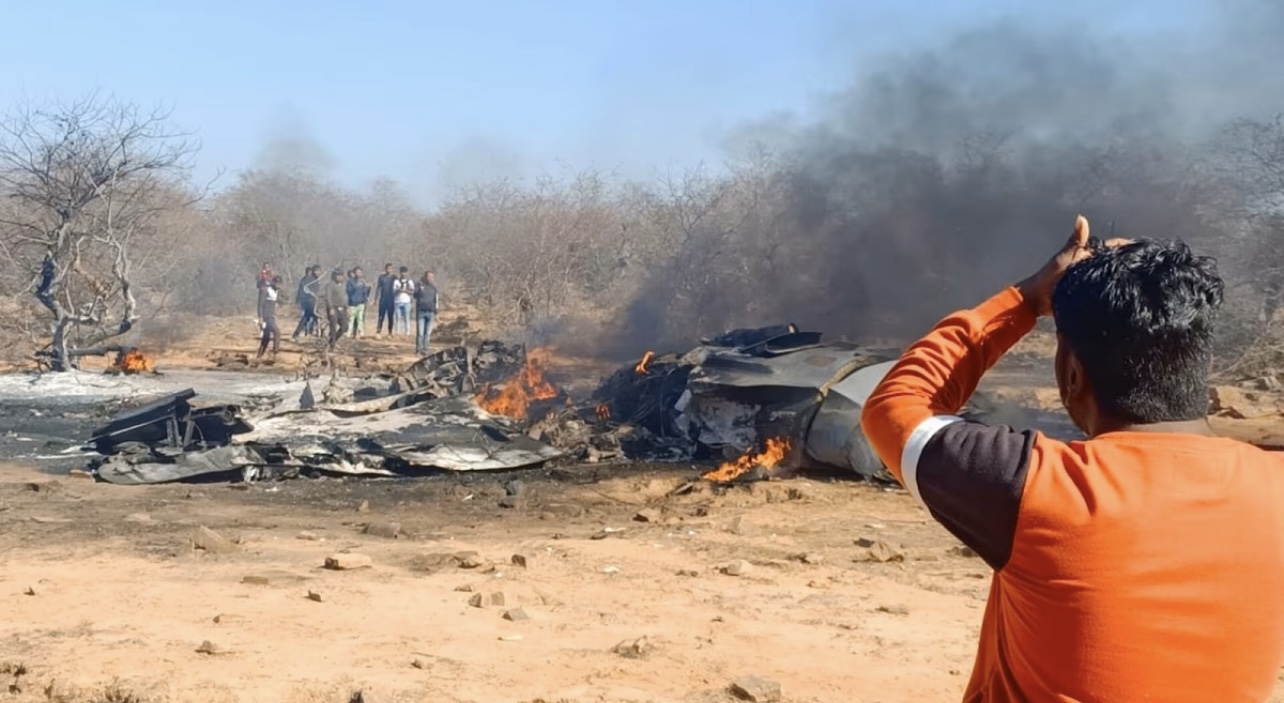Ukraine’s president Volodymyr Zelensky warned world leaders at the United Nations this week that if Moscow is not checked, “Russian aggression” will spread beyond Ukraine — and urged allied governments to increase military and diplomatic pressure now to prevent a wider war.
Speaking at the U.N. General Assembly on 24 September, Zelensky framed the conflict as a growing, technological arms race and told delegates that “weapons decide who survives,” arguing that failing to stop Russia now would leave other countries exposed to similar destabilizing operations. He said recent Russian drone and other operations beyond Ukraine underline the risk that the Kremlin’s campaign could widen unless confronted by a united international response.
Zelensky expanded on that warning in an interview with Axios after his UN address, saying Kremlin officials “have to know where the bomb shelters are” — a comment he cast as a taunt at Russian leaders if they refuse to end the war — and confirming that Kyiv is pressing partners for additional long-range weaponry that, he said, could be used as leverage to bring Moscow to the negotiating table.
The speech came a day after a high-profile meeting between Zelensky and U.S. President Donald Trump in New York; Western reporting said Trump signalled stronger rhetorical backing for Ukraine and Zelensky said he had sought specific weapons systems in talks with the U.S. delegation. Reuters and other outlets reported Zelensky’s appeal for greater security guarantees and matériel as part of his appeal to the Assembly.
Russia’s leadership responded with sharp rhetoric. Dmitry Medvedev, deputy chair of Russia’s Security Council and a frequent Kremlin hard-liner, warned on social media that Russia “can use weapons a bomb shelter won’t protect against,” comments widely read as a veiled reference to Moscow’s own strategic arsenal. Moscow has otherwise dismissed Western accusations of cross-border provocation as politically motivated.
NATO and European capitals have already reported incursions and suspicious flights near alliance airspace in recent weeks, heightening anxieties on NATO’s eastern flank and reinforcing Zelensky’s argument that the conflict poses a broader European security threat if it is allowed to continue unchecked. Analysts quoted by international outlets say Zelensky’s message to the U.N. was both a warning and a plea: stop Russia now or prepare for a more dangerous, wider confrontation.
What Zelensky asked for — and why it matters
•More and longer-range weapons: Zelensky told partners that longer-range systems would not necessarily be deployed immediately but could be critical leverage to force Moscow to negotiate. Reuters and Axios covered the request and Zelensky’s suggested rationale.
•Global rules on emerging tech: Zelensky warned of an unprecedented “arms race” driven by drones and artificial intelligence and urged international coordination to regulate military uses of such technologies.
•A united diplomatic front: He pressed UN members to act collectively to raise the costs on Russia and to protect vulnerable neighbours such as Moldova and Georgia, which he singled out in his address.
Governments and experts are divided over how far to go in supplying Ukraine with new systems, especially those that could strike deep into Russian territory. Proponents say stronger capabilities could shorten the war by changing Kremlin calculations; critics warn escalation risks and stress the need for diplomatic safeguards. Meanwhile, hardline Russian officials’ public warnings underscore Moscow’s willingness to respond forcefully to perceived existential threats.



